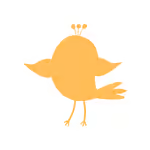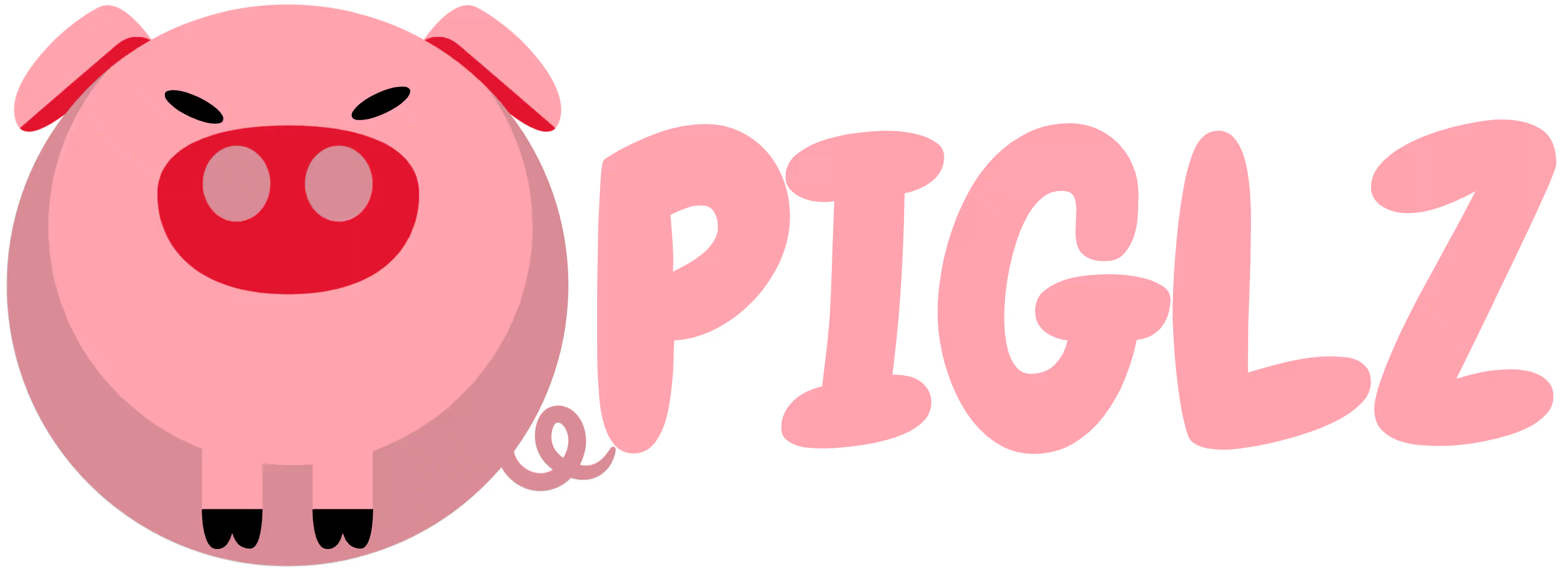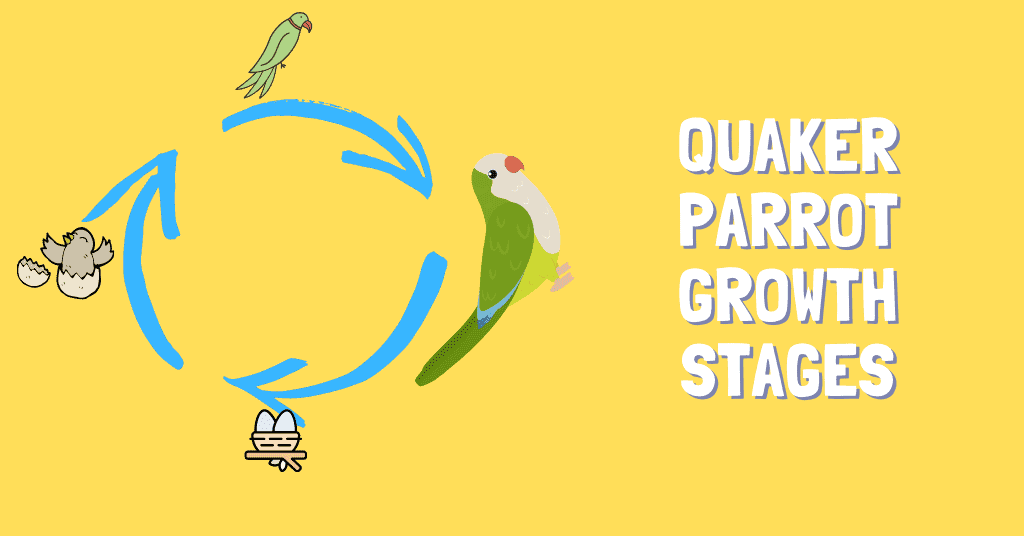The quaker parrot growth stages are:
- Egg
- New Born
- Imprinting Stage
- Fledgling Stage
- Weaning Stage
- Juvenile Stage
- Sexual Maturity
- Adult Parrot

The egg stage
An adult quaker parrot will lay an egg 24 hours after fertilization. This is when the egg stage starts (obviously!) At one egg per day, it can take up to a week or more for the quaker to finish laying. These eggs will hatch in 19 to 21 days once the adult starts to sit on them.
Not much else to say about the egg stage. This is one of the shortest stages in a parrot’s life, and as such will not be covered extensively.

The newborn stage
Just like everything else in this cruel dark world, The baby parrot will come out of its egg, featherless (naked) and blind. It’s entirely reliant on its mother during this stage and can not survive more than an hour away from her.
The mother (or human caretaker) will feed the newborn baby bird formula or regurgitated foods until it can eat on its own.

The imprinting stage
At the impression stage, parrots are no longer completely blind. They open their eyes and start to look around. The first living thing they see becomes its parent figure.
It will become extremely attached to its parents.
It’s absolutely vital the human caretaker be a part of this process.
It’s also vitally important you do not ‘replace’ your parrot’s parents. She should see her parents but you should also be there to start taming training.
Lots of bonding and hand-holding will help you build a strong relationship with your new pet.

The fledgling stage
The baby bird has now fully grown its body feathers and tail feathers. She will start leaving the nest more, and learning how to fly.
This will be a difficult time for the newly fledged parrot. They are still very young, and at this stage will still be completely dependent on you or the mother for food.
We do NOT recommend wing clipping, however, this is the stage it should be done if you are going to do it. Just be sure that the baby bird has learned to fly before taking this drastic action. (It can be done at any age really, but again be sure it has learned to fly before doing so).

The weaning stage
This is when the quaker will begin to eat on its own, getting its first taste of solid foods and breaking away from its mother.
Given the Quaker’s massive attachment to his mother, You may need to encourage and train your parrot into eating on its own.
Quakers can be extremely picky eaters and may not want to try new foods at first, but should be encouraged to do so by this point.

The juvenile stage
At this stage your pet is still a baby, However, he now craves independence from his parents as well as food. He will begin to test his boundaries and try to take control.
Quaker parrot owners should discourage this behavior by setting strict rules of acceptable behavior (which are outlined below).
The juvenile stage is a time when the Quaker parrot’s personality really begins to show, as it learns new things and how to have fun. He will begin interacting with you and your family and start to enjoy life.
Your new pet will learn a lot of crucial aspects in its development during this stage. Things such as acceptable behavior, where it can go without getting into trouble (your house), and things to avoid (such as electrical cords).
As the juvenile matures, you should begin giving it more time to itself. Respect its wings, but make sure it knows that you, its “parents” are still in control.

The maturation stage
Your parrot is now, for all intents and purposes, a teenager. This will be a very difficult stage for you and your parrot.
The bird will not want to listen to anything you say and will test its boundaries at every opportunity. It’s essential you remain the alpha in this relationship or risk losing control of your pet forever.
The first mating season may be very strange.
It’s not uncommon for a quaker parrot to “fall in love” with you, its owner. With everything that comes with it (regurgitating food for you, trying to mate with your hand etc.)
This should be discouraged as much as possible, however, nature is nature.

The Final Adult stage
Your parrot should have gone through several mating periods by this point and now it’s starting to calm down and become more mature.
This is when a quaker will make the best pet, although it will be far less entertaining. Much like as humans get older we get more boring.



